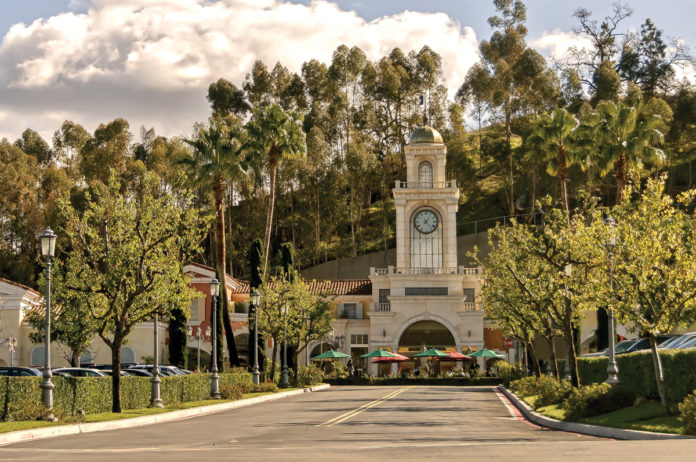Malls are bouncing back post-pandemic in North America, according to Jones Lang LaSalle Inc.’s first-quarter national retail outlook.
On the national level, net absorption for the first quarter totaled 24.1 million square feet after an already impressive fourth quarter of 2021 at 24.7 million square feet.
Leasing activity is approaching pre-pandemic levels, with nearly 63 million square feet of leases signed in the first quarter. Meanwhile, vacancy fell 20 basis points to 4.5%.
Retail rents are tracking 3.9% higher than they were a year ago. Strip and neighborhood centers continue to show the strongest annual rent growth among retail property types at 4.6% each. Malls and power centers also saw healthy rent growth.
On the local front, Austin Bettar, a senior vice president at JLL, said the market has tightened.
“The retail market in the San Fernando Valley is really strong,” Bettar said. “There is very little vacancy. We work with grocery-anchored power centers and we work with a lot of national and regional tenants. A lot of those types of tenants — they’re trying to find space but there’s a lack of it. There’s no new development.”
Properties that were vacated during the pandemic have already been backfilled by other national and regional tenants.
“You’ve had a lot of retailers like Sears and Kmart that basically folded their tent,” Bettar said. “What’s happened with those spaces, they have been redeveloped into something different. Instead of a retail store, it’s now an AMC theater with restaurants surrounding it.”
Bettar is referring to the new entertainment district in Canoga Park that Unibail-Rodamco-Westfield carved out of 160,000 square feet of former Sears space at the Westfield Topanga mall. In addition to the AMC theater, upscale dining and bowling operator Pinstripes is set to open there soon, while high-end retailer Hermes signed a lease toward a 2023 debut.
Restaurants that didn’t close during the pandemic are in good shape.
“When we had all those restaurants that couldn’t open to the public during the pandemic, those who held on have a more robust business,” Bettar said, adding that vacancies are now minimal.
“Overall in the San Fernando Valley, we have a sub-4% vacancy,” Bettar said. “That includes A, B and C properties. In the A properties, it’s substantially less than 1%. In Woodland Hills, at Warner Center, there’s no vacancy. It’s almost nothing.”
Bettar added that experiential retail centers are attracting many customers.
“The malls are doing well, the outdoor shopping centers like Caruso’s Commons in Calabasas or the Vineyards in Porter Ranch,” Bettar said.
Bettar said the Vineyards “did a great job of backfilling those vacancies, pre-leasing,” which “sets apart the entire north end of the Valley from what they had before.”
“Once they got Whole Foods and a couple of the restaurants, it’s almost 100% leased,” he said. “When you get into that category of high-end lifestyle centers, there’s only so many tenants who can go into those centers. They’re typically higher end, which means the shoppers are a higher-income demographic overall for those shopping centers.”
Moving forward, Bettar expects to see more retail activity across the San Fernando Valley, though development could be hard due to a lack of land.
Despite ecommerce’s rise in recent years, brick-and-mortar retail and restaurants are flourishing across the Valley.
“When people say retail is dead, the malls are dead, it’s just not true,” Bettar said.
